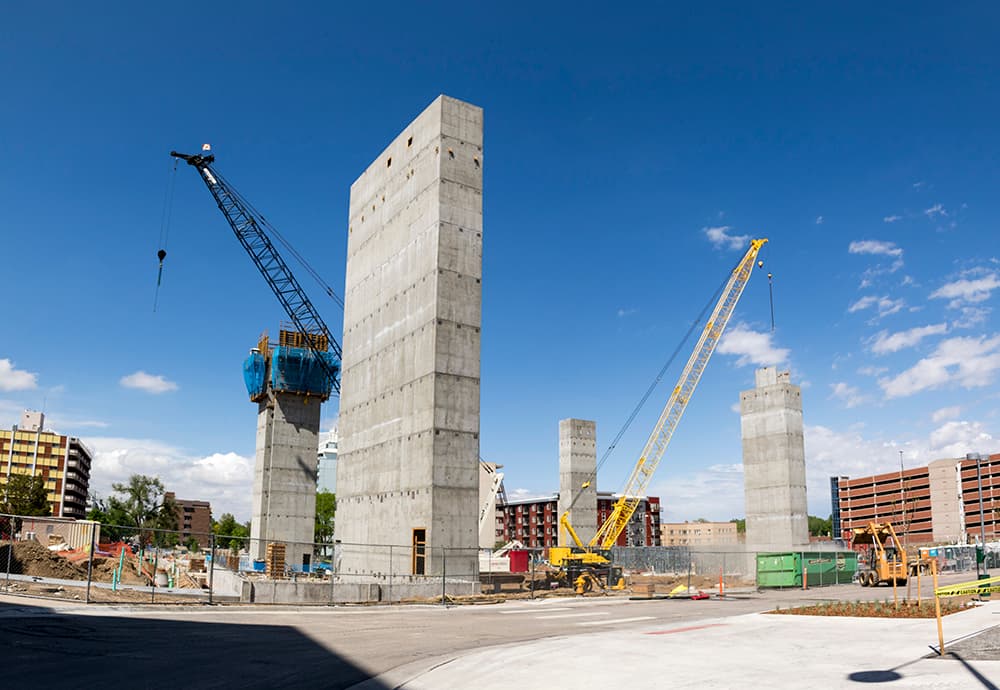Growth and development are front and center in District 5, an area that includes some of Denver's wealthiest neighborhoods and a chunk of less privileged ones.
Here, a new Trader Joe's sits on Colorado Boulevard across the street from a massive crater that will eventually house people, businesses and cars in a sparkling new area known as "9+CO."
But you'll also find well-used low-rises on East Colfax Avenue with East Colfax Avenue personality -- Ethiopian restaurants, salons, cafés, a quinceañera dress shop.

The district is far from homogeneous, but it has earned that reputation for a reason. Neighborhoods like Hilltop, Lowry and Montclair are often wealthy, often white, sporting average incomes of between $76,000 and $138,000, according to city data. East Colfax, meanwhile, hovers around $44,000. Refugees and immigrants live in District 5, though their presence has shrunk in recent years.
"My district has some of the lowest income and education rates in the city, with some of the highest unemployment," said incumbent Councilwoman Mary Beth Susman, "and other areas in my district have the highest income and highest education rates, with the lowest unemployment."
That's the backdrop to a city council race that has three challengers taking on Susman, all of whom think development has become unwieldy: Michele Fry, who is state Rep. Jovan Melton's chief of staff, Stephen Replin, who is an attorney and business coach, and Amanda Sawyer, who was a business consultant before she quit to run for office full-time.
Single-family houses are the norm here. Apartments and condos are less common. The district's current buildings are one way to look at the area's stark contrasts. It is future development, though, that will help us gauge the contrast between candidates. Here they are:
Michele Fry
Fry is a lifelong Denverite and ran against Susman in 2011. This time around, she vows to curb taxpayer subsidies for property developers and stop East Colfax from growing too tall or too congested.
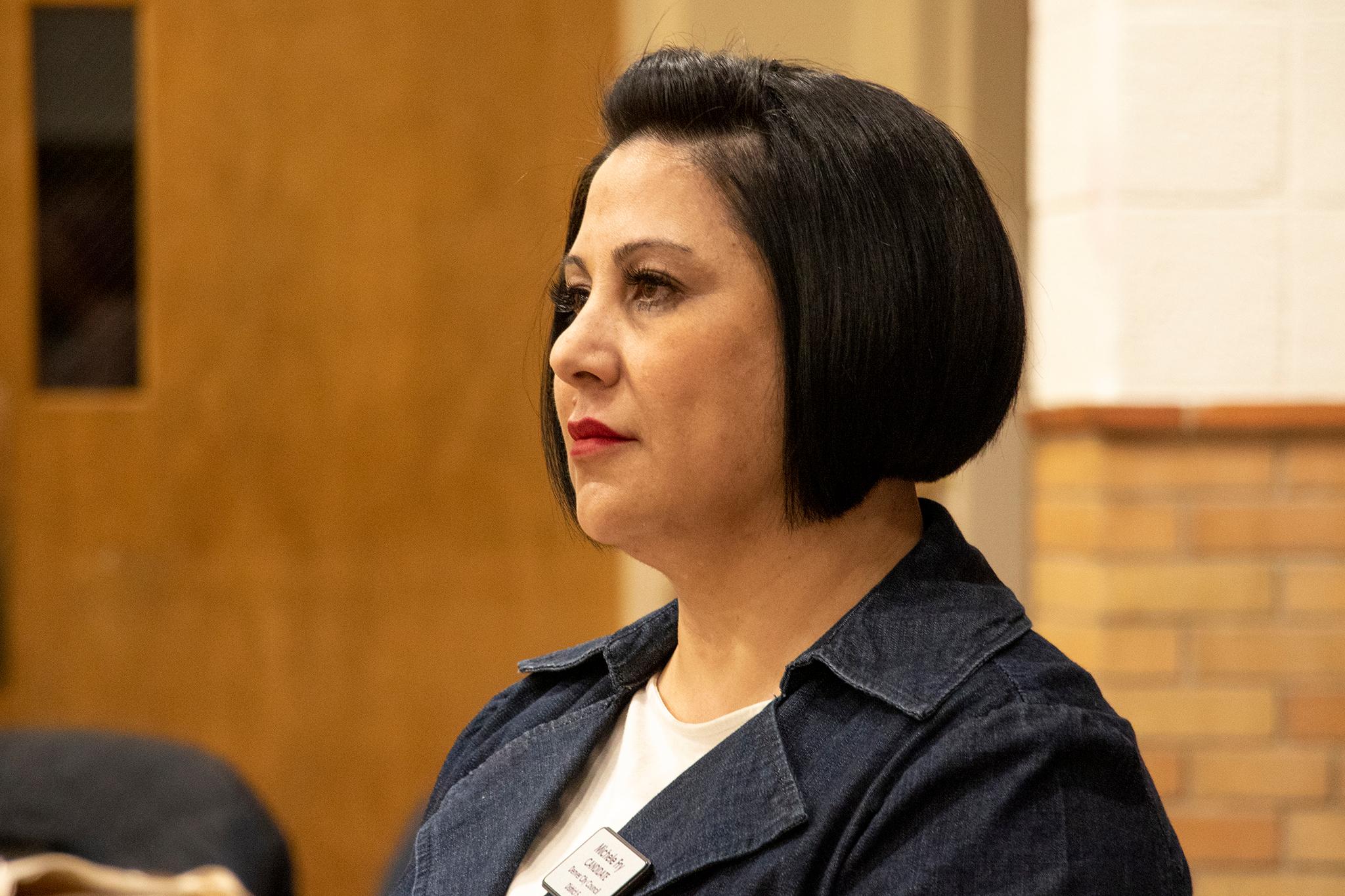
She believes Denver is giving too much taxpayer money to developers in the form of mill levies. Fry points to the River Mile development, which will get a stream of cash to build infrastructure and pay it back later with extra taxes on future residents.
"Of course the city's going to grow, of course we're gonna develop, of course we're an attractive place to live, but we don't need to be giving away the store at the price of the taxpayers and the people that are living here," Fry said.
While she would not specify a policy to change the practice, the candidate said she would pass something that "will benefit the electorate and it will be moving away from being so centric on the development welfare, on the corporate welfare."
Still, Fry realizes that Denver cannot simply stop growing. In January, when the city council spiked the Green Flats project, a proposed cluster of condos in Hilltop, it also spiked home-ownership, she said. The development could have housed teachers -- including one of the property owners hoping to redevelop her land.
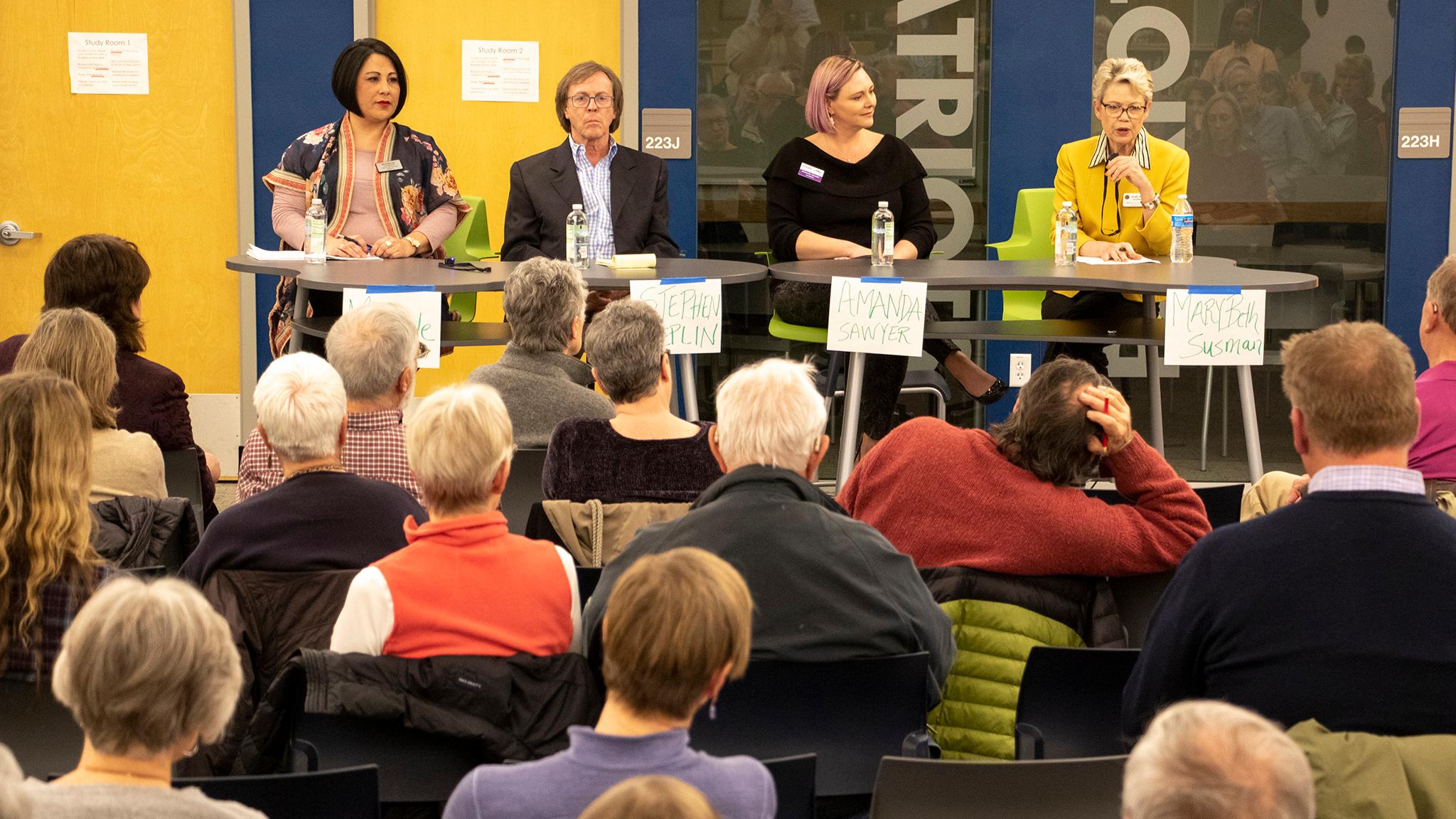
In the end it was official neighborhood organizations who blocked the project. Those groups, according to Fry, don't necessarily represent the entire neighborhood; they represent people who have the time and know-how to participate in civics.
"Their meetings can be prohibitive depending on if you have a family, the time of day, the day of the week," she said. "There needs to be more communication, more conversation, because I have seen a big divide."
If elected, Fry says she would fund community liaisons who go door-to-door regularly. Think "getting out the vote" tactics, only without the election.
Stephen Replin
Replin's stance on development is extreme, relative to his opponents. He wants the city to take a two-year break on all new development. He also thinks some developers are "stinky."
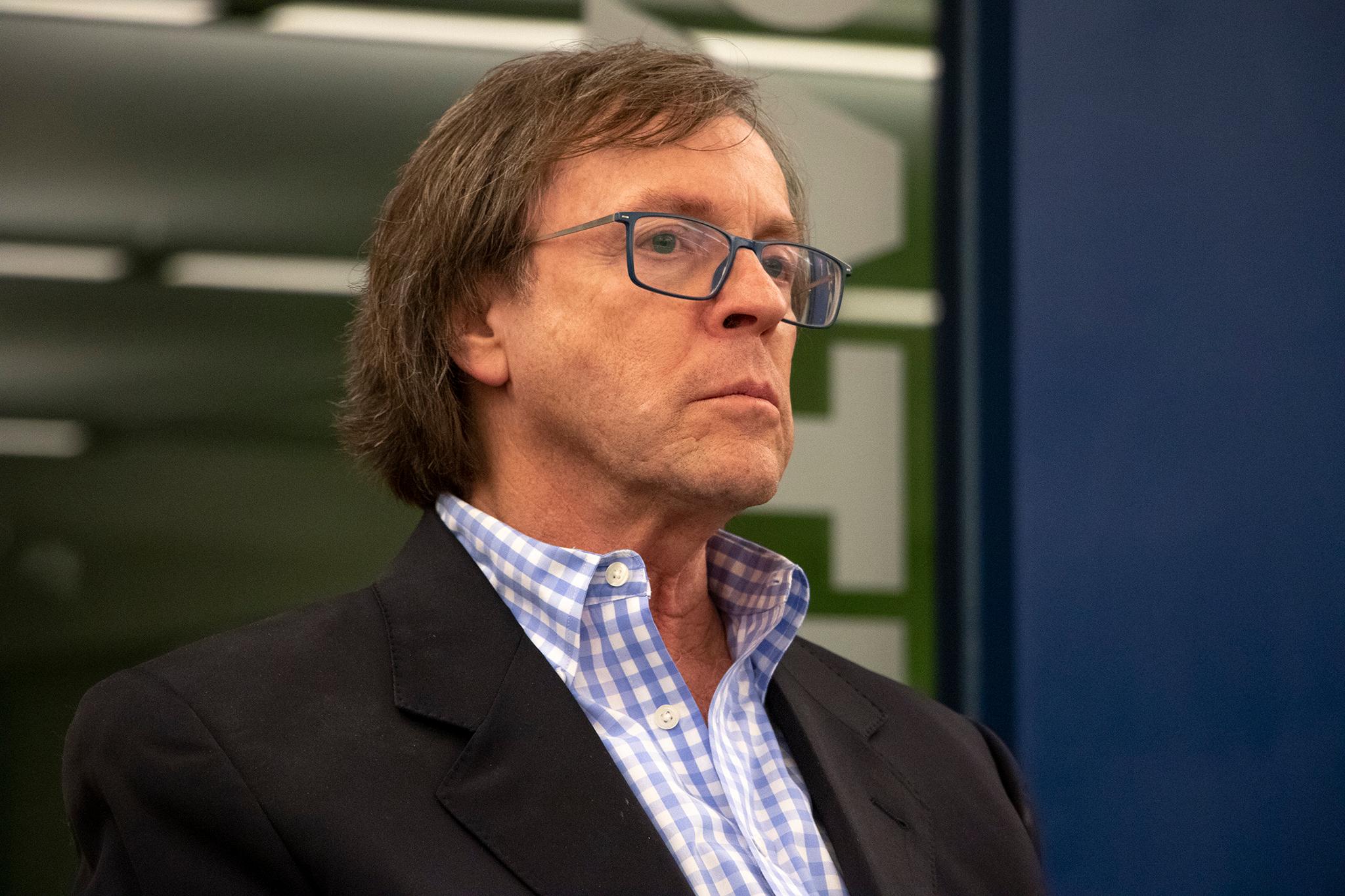
That's what the candidate told a group of residents at a forum last month.
"I think at the moment, from the top down, it looks like our growth is almost uncontrolled," he said. "Whenever you see a square inch of undeveloped land, you can bet there's some stinky developer out there who's thinking about a 30-story building. And the way these things come about is that they're not even keeping in character of the neighborhoods."
Replin says he would suspend all new building permits for 24 months for the sake of parking and "common sense."
He mentioned a development on 16th and Humboldt in Capitol Hill that a developer tried to build without parking, but he misfired. He claimed, wrongly, that "there's no mass transit that's close." Denver's most popular bus line (other than the free MallRide) is a short walk away on Colfax. Neighbors also bargained with the owner, who decided to rent parking spots for the building at the property next door.
Replin does not think people in his District will opt against driving until RTD's transit comes more often and goes more places, he said at a March forum at George Washington High School.
Amanda Sawyer
Sawyer, who moved to Denver in 2016, hopes to decelerate development while giving residents more control over the process. She aims to accelerate transit development to manage growth by, well, funding it.
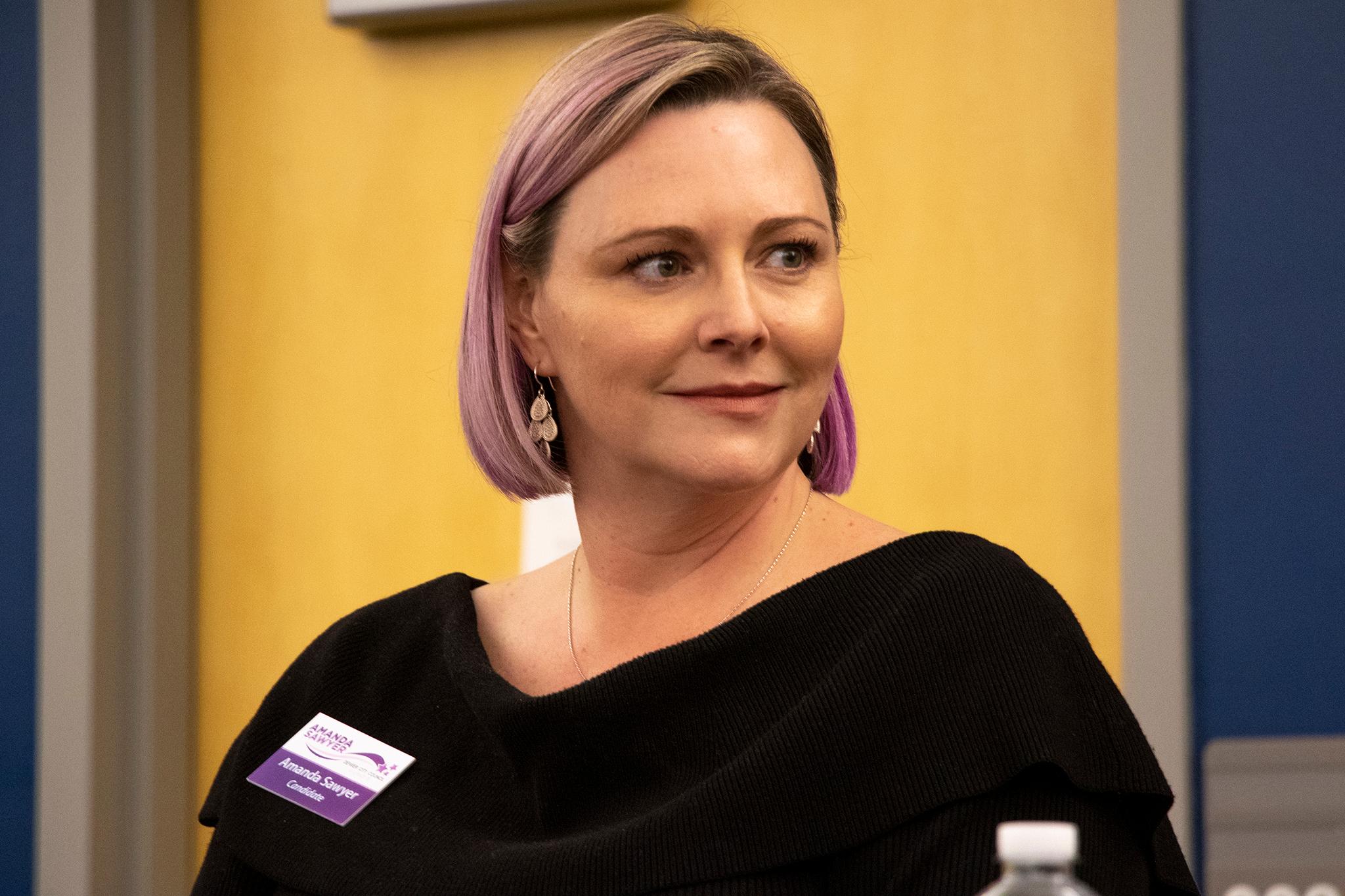
A singular event sparked Sawyer's decision to run.
The attempt by homeowners to build a cache of 23 zero-emissions, middle-income condos in Hilltop known as the Green Flats. The city council denied the developer when a group of neighbors, including Sawyer, voiced outrage over building heights, a perceived traffic nightmare and the city's rezoning process altogether.
"What I found was that people in the neighborhoods really aren't getting much of a voice," Sawyer said. "I think they're upset with the process and I think there's just a general level of frustration in the entire city for the changes that go on."
The developer made concessions, including more parking and six fewer homes to ease traffic fears. But Sawyer said the homebuilder "wasn't negotiating in good faith."
Some D5 neighborhoods have a reputation for fighting development more furiously than other neighborhoods and absorbing fewer new homes than areas closer to the city center. Not everyone opposed the Green Flats, but vocal residents did. Development issues don't have to be contentious, according to Sawyer. She blames the process on a "lack of leadership" from Susman.
"Denver is going to have to continue to develop, and it should, because we need housing," Sawyer said. "But on the other hand we've got to be more thoughtful about this and building the infrastructure around it to support it."
Mary Beth Susman
Susman has served for eight years. She wants four more to address the housing shortage with more homes in more places, including traditionally single-family housing neighborhoods. She's also a longtime advocate for sustainable transport -- walking, biking, buses and trains -- and says she would fund those things to curb Denver's car addiction.
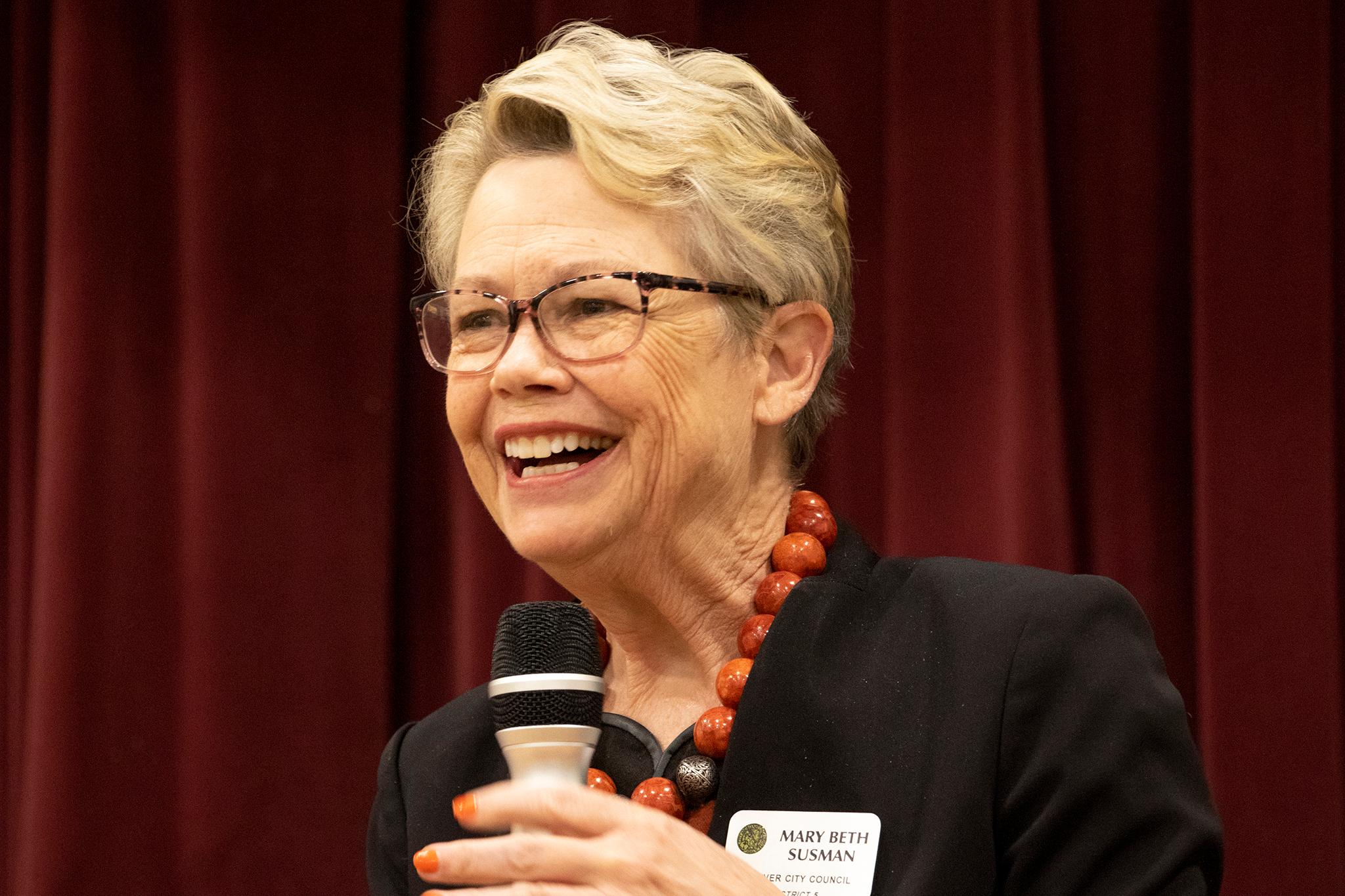
Susman's beliefs place her in the opposite corner of Sawyer. She voted to allow the new homes in Hilltop.
The two-term councilwoman says she understands the resistance to new things but tends to look at development in terms of citywide needs rather than just the desires of adjacent neighbors. She saw the condos as a boon for a city with a housing shortage that's missing middle-income homes (the Green Flats would have started at $300,000).
Susman wants to undo the dominance of single-family homes and diversify her district's housing stock by allowing more types of homes, including four-plexes and duplexes, but that's not the easiest message to get across.

"Change is hard for folks in some regard, unless it's change that they're asking for," Susman said. "The way I do it is just to keep talking about the research and the facts and how we can absorb the growth in our population in a neighborhood-friendly way.
"Because if they have to go outside of the city to find a home, it increases our traffic exponentially, because 60 percent of our traffic is from outside of our city. And I'm trying to make voters understand that the traffic issues and housing issues are very closely aligned. And it's a tough one."
Here's where the candidates fall on Denver's most transformative street project since uprooting streetcars -- Colfax bus rapid transit.
Perhaps no project in D5 will change more stuff than the bus-only lanes, light-rail-type stations and pedestrian improvements planned for East Colfax Avenue. But that doesn't mean all candidates are all in.
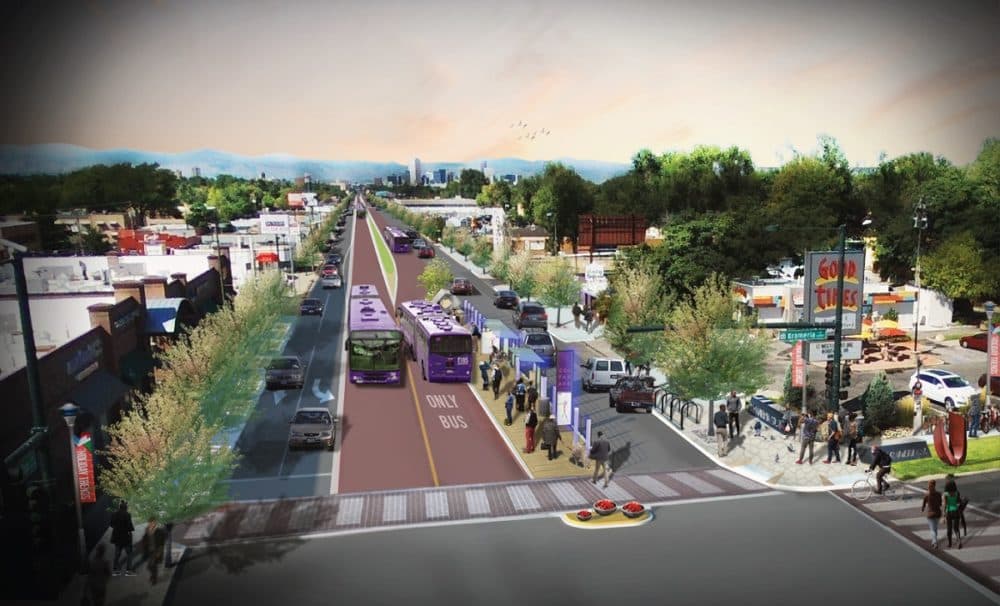
Fry likes the general idea but says she's concerned about cars accessing businesses. Sawyer sees BRT's worth, but thinks there could be a land-grab that will price-out residents. Both candidates think five-story buildings, which already exist along Colfax, are too high.
"I'm not looking to have a concrete jungle built," Fry said.
Susman points to the city's plan to concentrate density around walkable neighborhoods with good transit. City-owned property on Colfax destined for affordable homes should ease the burden on locals, too, she said.
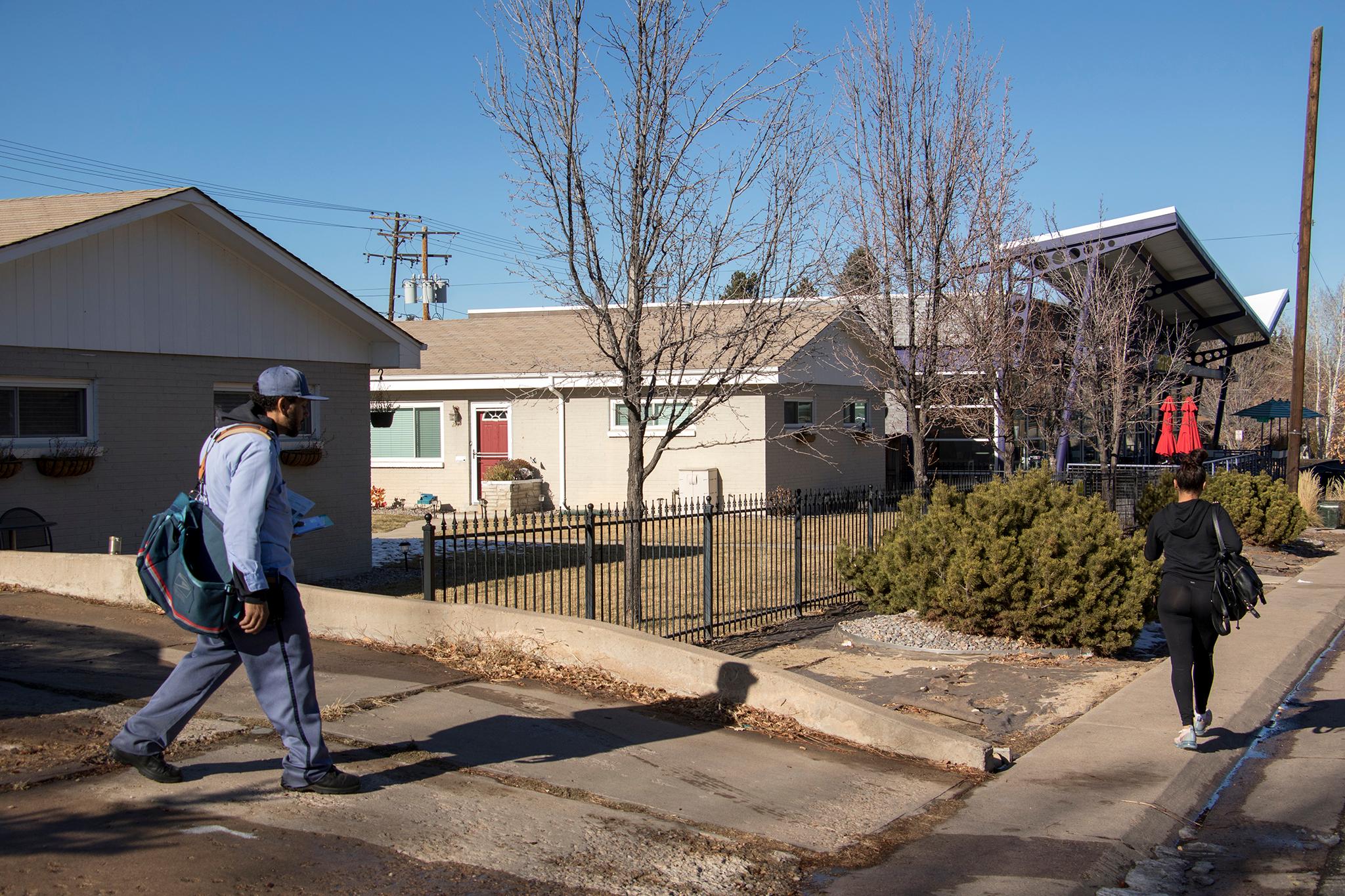
Who's got money?
Only three candidates, Fry, Sawyer and Susman, have filed campaign finance reports. Click on the candidate's name to see who gave to their campaign:
Fry has raised more than $24,000, with $19,000 coming from her own pocket.
Sawyer has raised a little over $75,000, with $40,000 coming from her own pocket.
Susman has raised a little over $38,000 this election cycle, but had a little more than $68,000 as of March 3 because of funds left over from previous campaigns.
This article was updated to correct the original number of proposed units for the Green Flats, which was 27, not 29.

